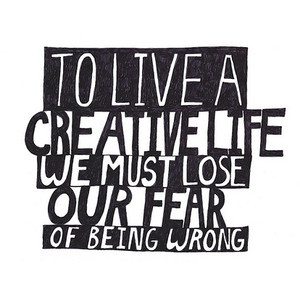As the 2012 wine blogging season kicked off, three notable wine bloggers weighed in with wine blogosphere predictions, analysis, and reflections. In the last month, Steve Heimoff, Tom Wark, and Alder Yarrow posted their opinions on the evolution of the wine blogosphere, sustainable wine content creation, and/or why they blog. I regularly follow these guys because they write with authentically developed voices. I can’t always relate to all their points of view, but the content is usually entertaining.
 Heimoff heralded and pivoted off a recent Jason Calacanis claim that “blogging is dead and stupid people shouldn’t write”. Heimoff suggested, as indirectly and gently as his style allows, that topical expertise is required to blog about wine and the new Web 3.0 environment will filter out marginal wine content creators and “sharpen the research and writing abilities of the bloggers who remain, making the wine blogosphere a more professional platform.”
Heimoff heralded and pivoted off a recent Jason Calacanis claim that “blogging is dead and stupid people shouldn’t write”. Heimoff suggested, as indirectly and gently as his style allows, that topical expertise is required to blog about wine and the new Web 3.0 environment will filter out marginal wine content creators and “sharpen the research and writing abilities of the bloggers who remain, making the wine blogosphere a more professional platform.”
Wark focused on “wine blog burnout” and that the “wine blog explosion was just that.” Fewer launches are combining with increasing numbers of shuttered blogs to eventually consolidate authority with the remaining few “competent bloggers.”
Yarrow celebrated his blog’s eighth birthday (a formidable achievement) by looking back at the stages of the wine blogosphere’s development and how different classes of writers joined in over time. He eloquently mapped the early lonesome days, all the way through a period where traditional wine journalists and critics started leveraging these new online publishing tools.
But Yarrow’s chronicle waxed personal; almost confessional. He recalled starting Vinography to be more efficient with communications to friends seeking his wine opinions and also to figure out how blogs work. He closed his post by genuinely admitting to continual blogging because “…some people knit, I write about wine. Sitting here in front of my blog is an aesthetic pursuit as much as it is anything else. I enjoy it infinitely more than watching television.”
Yarrow’s point of view resonates most; as if it came from a kindred spirit. It helped me understand why Vinography content is so easy for me to appreciate. Like Alder, I started my blog to more efficiently share wine perspectives with friends who always asked, and to immerse myself in web content creation so I could be a better leader for my content marketing and social media company, DigitalSherpa. Yarrow admits his ultimate pleasures come from the engagement that his content produces. For me, wine blogging’s greatest rewards are the virtual and real life connections with people who share my passion for wine. It expanded my network, advanced my learning, and mostly connected me with people that I never would have had the chance to meet.
 Yarrow’s confessions also helped me understand where Heimoff and Wark are probably coming from with their orientation for dominance and consolidated online authority. I am guessing that unlike Yarrow, me, and hundreds of others…they blog to advance their professional standing in the wine trade and with consumers. That’s just instinctive conjecture, and I am sure that both guys also feel the same jollies that bloggers without professional agendas do. They each seem bright and smart, one a wine PR professional and the other a wine journalist and critic. Blogging enables expanded professional postures and business outcomes. It develops authority around regular remarkable content and pays large professional dividends. My company does this for thousands of businesses; I know it to work just that way.
Yarrow’s confessions also helped me understand where Heimoff and Wark are probably coming from with their orientation for dominance and consolidated online authority. I am guessing that unlike Yarrow, me, and hundreds of others…they blog to advance their professional standing in the wine trade and with consumers. That’s just instinctive conjecture, and I am sure that both guys also feel the same jollies that bloggers without professional agendas do. They each seem bright and smart, one a wine PR professional and the other a wine journalist and critic. Blogging enables expanded professional postures and business outcomes. It develops authority around regular remarkable content and pays large professional dividends. My company does this for thousands of businesses; I know it to work just that way.
It’s no wonder that Wark and Yarrow track how bad bloggers are weeded out, a narrowing playing field, and consolidating web dominance. They make livings in the wine trade and I respect their focus in that regard. Yarrow stays glued to the keyboard because he’s hooked on the engagement and what it brings. Different worlds, same blogosphere.
I never intended to create the world’s next great wine community at WineZag. Nor did I ever have designs on WineZag becoming a center for wine criticism; a new media player in the world of wine media. I do it for me, just like Yarrow chooses it over knitting and TV. While Yarrow has accomplished more than any blogger would aspire to, it apparently came as a byproduct of more humble goals. It’s completely sensible that Steve and Tom talk about expertise, dominance, and authority. The disconnect I have is blogging for me is about the experience, human connection, or, as Yarrow puts it, “aesthetic” pursuit that squelches any other priorities like “weeding out the stupid”, establishing dominance, or consolidating authority.
I suppose that human connection will continue to combine with easy web creation tools, like blogs, to support a robust blogging community for years to come; made up of enough writers who really don’t care about dominance at all.